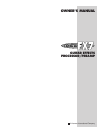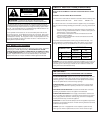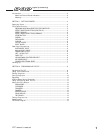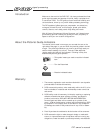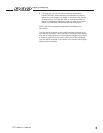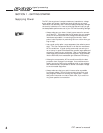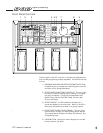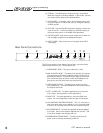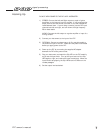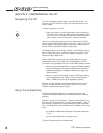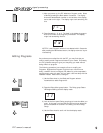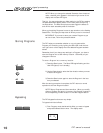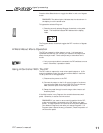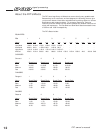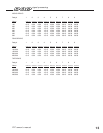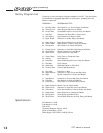
signal processing
SECTION 1 - GETTING STARTED
Supplying Power
The FX7, like any piece of computer hardware, is sensitive to voltage
drops, spikes, and surges. Interference such as lightning or power
"brownouts" can seriously, and in extreme cases, permanently damage
the circuitry inside the unit. Here are a few tips that will help you get
the best possible performance out of your FX7 while avoiding damage:
• Always make sure you have a "clean" power source for connect-
ing to the FX7. This means that the AC power line you connect
to the FX7 should be as free from voltage fluctuations and RF
interference as possible. In recording environments, "clean"
power is also important in preventing AC hum or buzz from get-
ting to tape.
• Use a good quality spike / surge suppressor (also called a power
strip). This is an inexpensive solution to all but the most severe
AC line conditions. A good quality power strip can save you a
lot of money in repair bills because they prevent large spikes and
surges from reaching your equipment. Also in this category (but
more expensive) are rackmount power supplies. Some of these,
like the DOD 828, have retractable light tubes and RF filtering.
• Although more expensive, AC line conditioners offer the best
protection from improper line voltages. Line conditioners con-
stantly monitor the AC line for excessively high or low voltages
and instantaneously compensate to deliver a consistent voltage
to the connected equipment.
• Always make sure that your audio lines are as far as possible
from power cables. This will further prevent noise, hum, and
stray magnetic fields from entering your signal path. If audio
and power lines must run close to each other, try to avoid run-
ning them parallel to one another.
4
FX7 owner's manual



